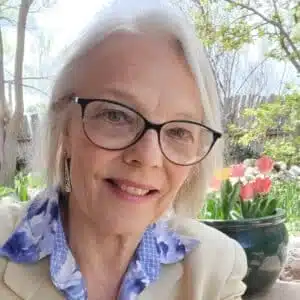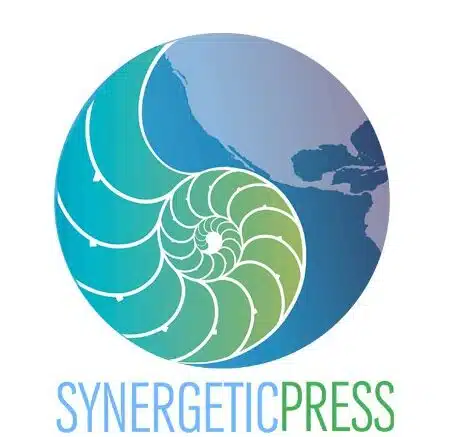

Deborah Parrish Snyder
Apr 27 6 pm PDT
Deborah has published over 40 books through her publishing house Synergetic Press, Ltd. in global ecology, regenerative agriculture, ethnobotany, psychedelics, and social justice, since establishing it in 1984. In 1986, she was on the team that designed and built a large-scale closed ecological system, Biosphere 2, developing the publications and educational programs for the complex. In 1990, she started The Biosphere Press, an imprint of the Biosphere 2 project, producing a dozen books and a classroom curriculum for children on biospheres and biomes. While at Biosphere 2, Deborah met Richard Evans Schultes, the grandfather of contemporary ethnobotany. She went on to publish his two books of photographs he made documenting people’s use of plant medicine in the NW Colombian Amazonia. Deborah is a director and VP of the U.S. non-profit, the Institute of Ecotechnics, based in Santa Fe, New Mexico at Synergia Ranch. The Institute owns the RV Heraclitus, an 84-foot ferrocement Chinese Junk design that sailed 270,000 miles around Planet Ocean, with two years up the Amazon on an ethnobotanical expedition inspired by Schultes (1980-1982). Deborah currently lives at Synergia Ranch organic farm and retreat center where she lives, contributes to the farm operations when she can, and continues publishing books.
All Sessions by Deborah Parrish Snyder
6 pm Deborah Parrish Snyder: The Hidden History of Women
Since the inception of Synergetic Press in 1984, our journey has been one of deliberate exploration and advocacy for often sidelined subjects, such as ethnobotany, biospherics, and by the 2000s, psychedelics. However, our path was not without its challenges, particularly in sourcing and amplifying the voices of women and other marginalized communities, whose perspectives were frequently overlooked in the broader discourse. Recognizing the importance of representation, we made it our mission to actively seek out and publish works by and about women, alongside other marginalized voices. Through strategic collaborations with organizations like the Chacruna Institute for Psychedelic Plant Medicines, we were able to unearth a wealth of hidden histories, showcasing the diverse experiences of Indigenous communities, LGBTQIA+ individuals, and women within the psychedelic landscape. Our latest publication, the anthology "Women and Psychedelics: Uncovering Invisible Voices," stands as a testament to our commitment to shining a light on these overlooked narratives. In my talk at this conference dedicated to women and psychedelics, I am eager to delve into the untold stories and profound insights that this anthology brings to the forefront, highlighting the vital role that women have played, and continue to play, in shaping the psychedelic experience.
